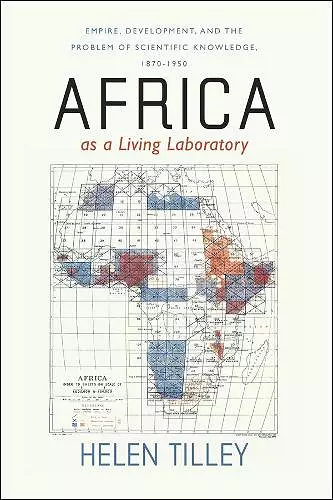Africa as a Living Laboratory
Empire, Development, and the Problem of Scientific Knowledge, 1870-1950
Format:Paperback
Publisher:The University of Chicago Press
Published:19th Apr '11
Should be back in stock very soon

Tropical Africa was one of the last regions of the world to experience formal European colonialism, a process that coincided with the advent of a range of new scientific specialties and research methods. "Africa as a Living Laboratory" is an ambitious study of the thorny relationship between imperialism and the role of scientific expertise - environmental, medical, racial, and anthropological - in the colonization of British Africa. A key source for Helen Tilley's analysis is the African Research Survey, a project undertaken in the 1930s to explore how modern science was being applied to African problems. This project both embraced and recommended an interdisciplinary approach to research on Africa that, Tilley argues, underscored the heterogeneity of African environments and the interrelation of the problems being studied. While the aim of British colonialists was unquestionably to transform and modernize Africa, their efforts, Tilley contends, were often unexpectedly subverted by scientific concerns with the local. Meticulously researched and gracefully argued, "Africa as a Living Laboratory" transforms our understanding of imperial history, colonial development, and the role science played in both.
"This is an ingenious book that will establish Helen Tilley as a considerable authority in the field. Tilley's unusually rich and sensitive exploration of primary materials and firm grounding in the existing literature will help students and scholars reorient their understanding of the crucial roles scientific agencies played both in imperial administration and economic development." (Simon Schaffer, University of Cambridge)"
ISBN: 9780226803470
Dimensions: 23mm x 15mm x 4mm
Weight: 709g
520 pages